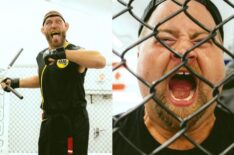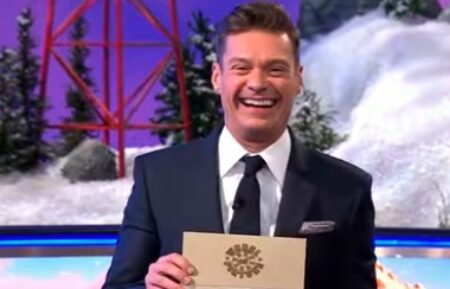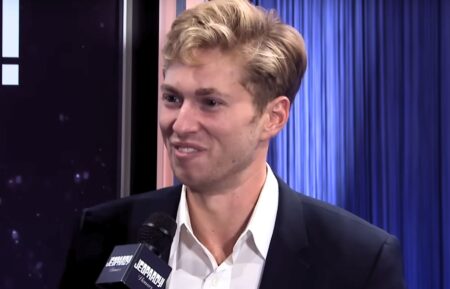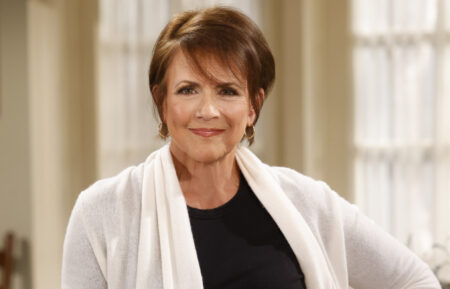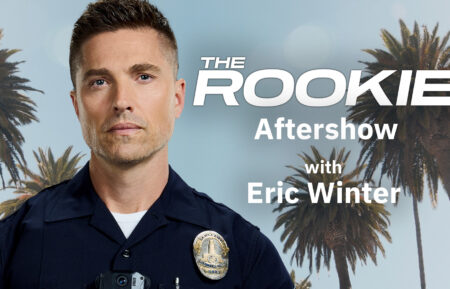WWE Hall of Famer Eric Bischoff on Taking Control of Major League Wrestling ‘One-Shot’
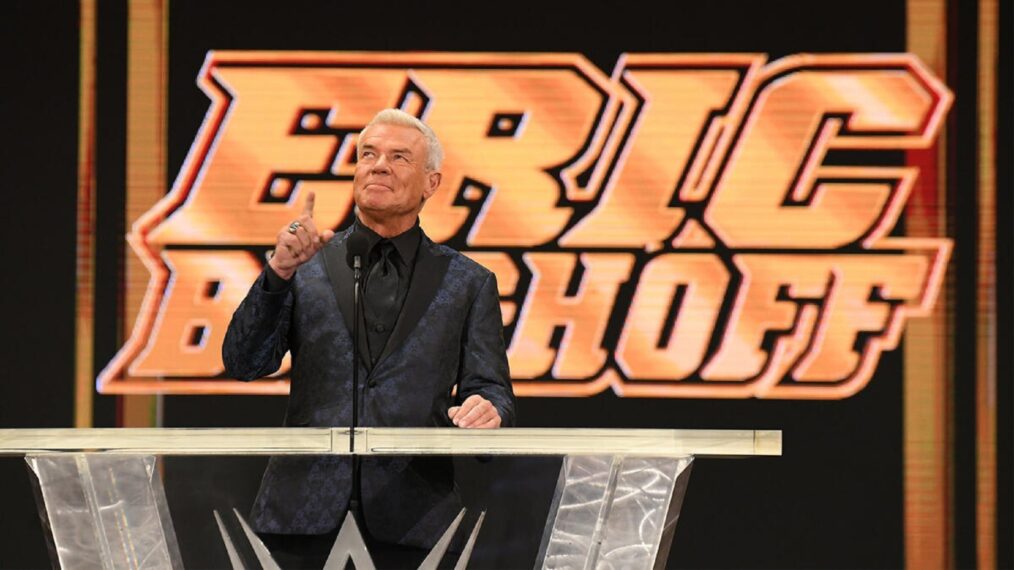
Q&A
Eric Bischoff helped change the game of pro wrestling. As executive producer and senior vice president of World Championship Wrestling (WCW), he took the company to new heights with big moves that shook up the industry. Among them turning Hulk Hogan bad to lead the New World Order (nWo), leveraging celebrity involvement including Dennis Rodman and Jay Leno, and making Monday night appointment television with the flagship live show WCW Nitro.
After the once Ted Turner-owned promotion was bought by Vince McMahon and shuttered, Bischoff continued to do the unexpected joining the once rival WWE as an onscreen character working alongside “Stone Cold” Steve Austin. He’d also bring his wealth of knowledge as an executive producer for TNA Wrestling. That’s not even counting the success he had in the reality TV realm with his business partner Jason Hervey of The Wonder Years fame.
Today it seemed Bischoff had put his days producing in-ring product behind him. That is until the award-winning actor Paul Walter Hauser appeared on the WWE Hall of Famer’s YouTube show Wise Choices. Hauser called Major League Wrestling owner Court Bauer live on the air with the idea of Bischoff taking control of the One-Shot event, streaming live from New York City. An idea both sides liked.
Here Bischoff, who also just showed up on WWE’s NXT television, opens up to TV Insider about dipping his toe back in the game. The “Controversy Creates Cash” author also gives his unfiltered insight on some of the hot topics in the business today.
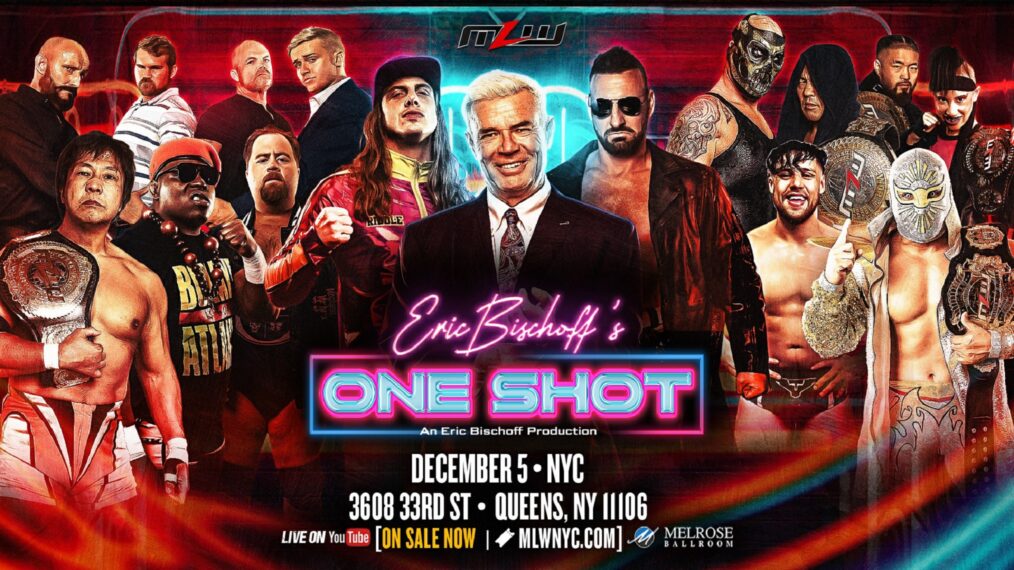
MLW
Have you thought about producing again before this opportunity with MLW came about?
Eric Bischoff: It’s always there. I’ll get a call from someone with an idea and ask if I would be interested. It doesn’t happen a lot. A couple of times a year. I’m constantly always wondering to myself if the opportunity came, would I want to do it again? The answer is always the same. Part of me misses the creative, collaborative part of creative. The energy when you get the right people in the room and the chemistry is good and the egos are all in check. Collaboration in creativity is really fun. It’s hard work, but it’s the most hard work I’ve experienced. And I’ve done a lot of things. I’ve dug ditches, put on roofs, all kinds of stuff. Not fun at all. I don’t miss the travel. I don’t embrace the idea of having control of someone else’s future and career. I know that may sound strange to me. Often times that is not a problem, but when you have young talent or talent that doesn’t have a good perspective of the industry or themselves in it, it becomes a challenge. I don’t miss that, but there is a lot I do miss.
You have control over this show. What can you say about your role in this show?
As far as creativity and my fingerprints on the show, I’m thinking more of the production than storylines. Let’s be real I’m not fluent in the backstory and talent and everything that has been going on in MLW. That will become important and clearly, Court and his team have a handle on that. What I want to do is whatever stories they have in place already, I’m focused on telling that story. What could I do from a production standpoint? For example, the way we treat the backstage interviews or the way we thread the story throughout the show. The way we build anticipation for the main event. Whatever is fundamental in professional wrestling but often times overlooked. Everyone is focused on the finish, the big spot in the match or the in-ring promo. All things that deserve attention, but in the process on focusing on the big things, producers have a tendency to lose sight of the little things that make teh show flow and creates emotion and hold viewers’ interest, and surprise them.
You bring up a good point. Presentation is so important when it comes to pro wrestling. I think back to what you did with WCW Nitro and how it had such a cool and exciting atmosphere. Between the way it was shot, the entrance, music, and all those things played a role.
It’s about the format of the show too. If anyone has listened to my podcast, I often talk about format. It’s a broad term, but I like to look at a format for a show and think about the emotional arcs that flow throughout a show. Fundamentally, television should build your interest over the hour or two hours. You should tune in because you are interested and stay anticipating what will happen next while being entertained along the way. Hopefully, you leave satisfied and come back next week. The manner you get there, that’s where the art comes in. When it comes to story, boy meets girl. Boy gets girl. Boy loses girl. Boy gets girl back. That’s a story. It’s not an exciting story or compelling story. But it’s also Romeo and Juliet in the hands of Shakespeare. You need to have a story but present it in a way that is emotioantl and compelling to your point.
What do you think of Court’s business model and leaning into YouTube and doing these live shows?
So much is dependent on his goals. The one thing I think Court and his team are doing right is they are not jumping into television for the sake of jumping into television so they can say they are on television. You have to be ready for that opportunity because if that opportunity comes and you’re not ready, that door is probably closed for you for a long time. Developing a feel for your show, developing your brand, and fanbase through YouTube for example. It’s a great way to prepare if and when the time comes and Court and the company decide to make the move, they have the built-in audience. He’ll be able to bring them wherever he goes. I think it’s a smart way to be prepared for that next big opportunity.
You’ve said on your show that AEW is hurting pro wrestling in a way because network executives may be watching the show and that’s their impression of what a pro wrestling show is. What do you think the vibe is when it comes to interest in an MLW to network executives?
In general, I have concerns for AEW. If you have WWE, and everyone knows it’s a monster and pop culture phenomenon spread around the globe. The production value is amazing. The storytelling is phenomenal. We know that’s the top of the list so to speak. Then you have the opposite, which is AEW. It’s the boys meets girl. Boy gets girl. They have those storylines. I guess you can call them storylines. The product itself is so hard to watch. The ratings have deteriorated drastically, live attendance deteriorated drastically, and there is so much chatter about that. I think to the extent AEW has become stigmatized. Network executives are the most risk-averse group of people right now I’ve ever worked with. Everyone in the television industry is job-scared, and rightfully so…It’s hard to get a network executive comfortable enough to take a chance on a new property without a great track record.
One of the other reasons I love what Court is doing is he is providing a proof of concept through YouTube. I think Court is doing it right. I’d say 99 percent of the time these executives know nothing about professional wrestling…When you have a network exec afraid to lose his job or take unnecessary risks and now you’re bringing in a product that is not a drama, movie of the week, sitcom, or none of those things. Wrestling is an odd little duck. That makes it more difficult to allay the fears. I think the time is right though. Pro wrestling on television is relatively inexpensive compared to sitcoms and dramas and action shows. The margins are there. Court’s job or anybody is to take away the fear. Once you do that, the appetite is there and it’s proven to have worked. They are just afraid to try it themselves. Then they tune into TBS and see what is going on there and are like, “Ew. I don’t want to do that.”
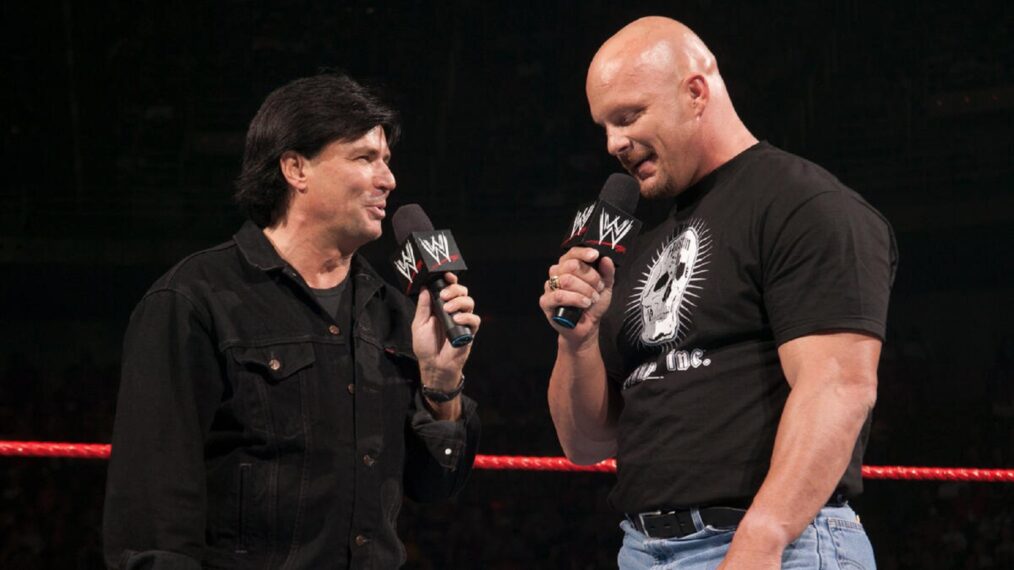
WWE
Next year marks 30 years since WCW Nitro debuted, which would ultimately jumpstart the “Monday Night War” between WCW and WWE. We saw an ECW-themed show recently on NXT. I’d love to see that happen next year as well for this milestone. How do you reflect on those times?
My show 83 Weeks is a nostalgia-based show, so I’m always looking into the history of the “Monday Night War” with WWE and WCW and all those things that happened during that era. I live in that era. In that sense, to me, that time was yesterday. The Mall of America, when you say that was almost 30 years ago? I think, “Not a chance.” It seems like yesterday in a lot of ways, but in others, it seems like a lifetime.
Any talk of marking this occasion in some way next year?
Originally, my podcast cohost and shepherd guidesman Conrad Thompson and I have talked about it. We talked early last spring maybe doing an event at the Mall of America. Having an 83 Weeks live podcast and show and bring people in who were part of Nitro. The promoters who were there recently already booked it, so we just let it lie. I wasn’t part of those calls, but evidently there was some talk about doing it maybe next year doing it together. These promoters have a good thing going there now. I don’t want to come in and bigfoot it or try. If they want to do something together and do a collaborative thing and have fun. It will probably be pretty successful.
A few weeks ago the Mr. McMahon docuseries dropped on Netflix. Do you feel it wasn’t made a bigger deal than it was set to be? What did you make of the response?
With the Mr. McMahon documentary, I don’t know how many people have watched it. I know a week or so after it came out I believe I saw Netflix said more than five million people worldwide saw it. Probably more than that right now. I think one of the reasons it didn’t make as much noise is because the noise you and I listen to usually takes place in the vacuum we live in. It was making a lot of noise there. Where it didn’t make a lot of noise is outside of the wrestling bubble. That’s partly because most people outside don’t talk to the people in it very often. It’s two different worlds. I think for wrestling fans and those in the business who talk about it, it’s really newsworthy. Outside our bubble, it’s not. It’s just another story. It’s interesting. It’s fascinating, but that documentary was produced for nonwrestling fans. It wasn’t produced for those who have heard these stories.
There was a lot of information in there for example Vince’s relationship with Shane, which I found fascinating. You have a little bit of who Vince McMahon was, but even that was contrived. You think about it. That interview and documentary was Vince McMahon’s idea. I have a friend in Hollywood who knows [EP] Chris Smith. We’re talking about years ago when this started to develop. This was a Vince McMahon branding experience and vehicle up until sh*t hit the fan. You got producers who have this story arc, Vince is involved and then, boom, Vince is gone. Talk about having to change your finish on the fly. Vince is gone and now you have this ther eight hundred pound gorilla part of the story. I think they did the best they could making it work. The really interesting part will be what happens after all this is over.

Hulk Hogan Eric Bischoff (WWE)
How did it feel seeing your friend Hulk Hogan front and center during Donald Trump’s election efforts?
As far as Hogan goes, it put a smile on my face because I’ve known him for a long time. He is a great person. Like all of us, he stumbles occasionally and falls occasionally. So do I. So do all of us. I saw a guy who is really happy. That made me happy. Obviously, it worked for Trump, but there were other things working for Trump besides Hogan. It was fun to see my friend having a good time and being out there doing what he has been good at for such a long time. And that is going out there and cutting a hell of a promo.
This MLW show is dubbed One-Shot, but do you see this as a trial run? If it goes well, do you see yourself maybe continue working with MLW?
It’s a good question and fair question, but I’m trying not to think about it because I just want to see how much fun I have. It’s not just me having fun. If Court and his team don’t enjoy it, just slug through it. I don’t want to do that. Or I feel that way, I don’t. The door is open certainly. I got bills. I got a life. I get bored in the middle of nowhere Wyoming occasionally and like to throw myself into something to put pressure on myself with something that challenges me.
It’s not a test. My only expectation is to have a great time and make sure the audience has fun. Make sure the talent I work with walks away with maybe saying, “I’ve heard all these terrible things about him. He is not such a bad guy.” Better yet, maybe they say they learned something from this experience. That’s the fun of it. Directing talent and getting more out of them than they thought they could give that’s the home run. In addition to collaboration, that’s the part I miss.
MLW One-Shot, December 5, 9/8c, YouTube
From TV Guide Magazine
What to Expect From 'The Hunting Party's Love Triangle and Mystery
Manifest alum Melissa Roxburgh and the showrunner of NBC’s Hunting Party tease TV Guide Magazine about what’s ahead for the “government conspiracy that just keeps unfolding” — plus, the series’ “good” love triangle. Read the story now on TV Insider.

